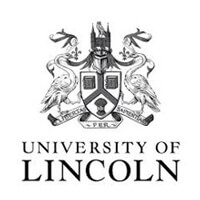fees waived
International Tourism Management, BA (Hons)
University of Lincoln, United Kingdom
Ranking in UK
Tourism, Transport, Travel and Heritage Studies
Hospitality, Event Management and Tourism
Hospitality, Leisure, Recreation and Tourism
Costs
food & rent S$17.1k / year
Entry requirements
Scholarships
Unlimited quantity
Unlimited quantity
Unlimited quantity
Unlimited quantity
Limited quantity
Limited quantity
Information
Code
Code
Intakes
Website (External)
Programmes
Information
Duration
2029
The BA (Hons) in International Tourism Management at Lincoln provides a comprehensive overview of the global tourism industry, highlighting its rapid growth, economic significance, and interdependencies. This program equips students with knowledge of tourism-specific and business-related topics, emphasizing critical thinking and organizational skills for managing large-scale operations. Through core modules, students explore tourism experiences, resource management, environmental protection, and legal issues, while optional modules allow customization based on personal interests, such as crisis management or consumer culture. A dissertation, consultancy project, or study abroad opportunity is available in the final year.Assessment varies across modules and may include coursework like essays or dissertations, written and practical exams, portfolios, group work, and presentations. Instruction is provided by professors, lecturers, researchers, and industry experts to support student learning.
During the first and second years, students have the opportunity to study the tourism experience and the principles of organising people, space and transport, as well as how to manage human resources, protect the environment and understand relevant legal issues and legislation. During the final year students can choose from a wide range of optional modules such as crisis and disaster management or consumer culture, and are expected to complete a dissertation or a collaborative consultancy project. There is also an opportunity to study abroad for a year at a partner university. Students are responsible for their accommodation, travel and general living expenses. For the most up to date module information, please visit the course page for this programme on our website. Some programmes provide you with the opportunity to focus your study in a particular area through optional modules. Timetabling arrangements may limit the availability of some optional modules to some students. As the options often reflect staff research interests, they may alter over time due to staff availability.
A local representative of University of Lincoln in Singapore is available online to assist you with enquiries about this course.

